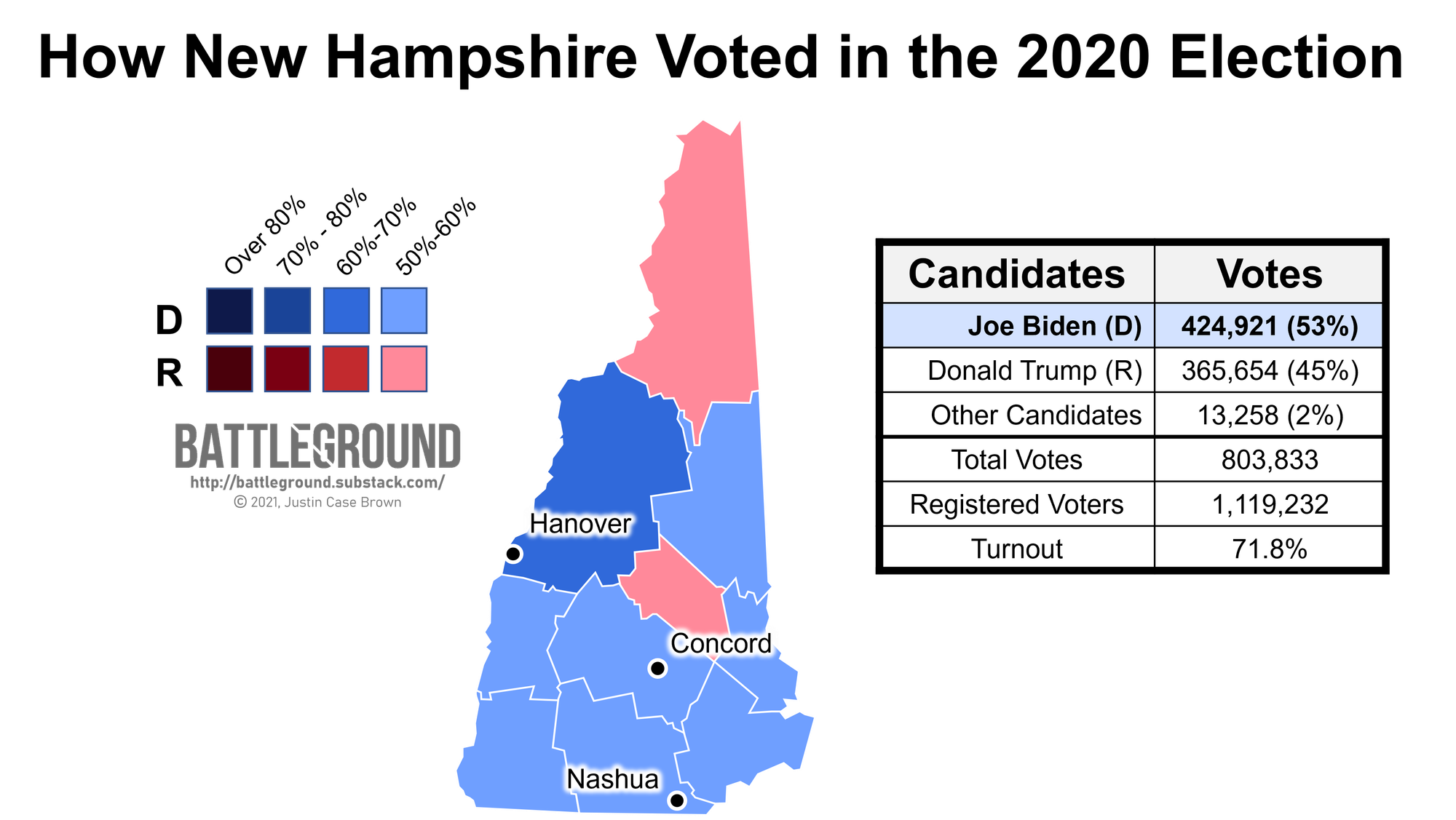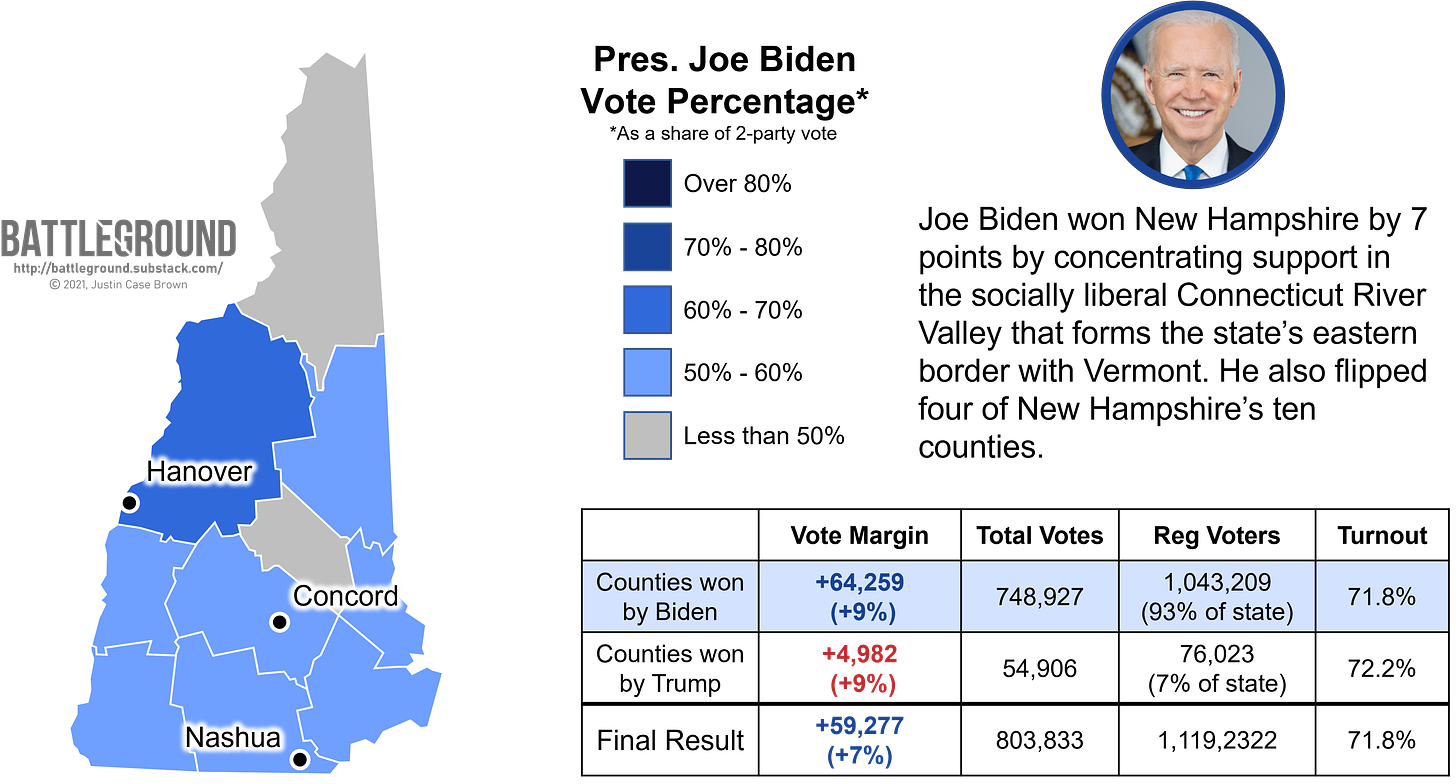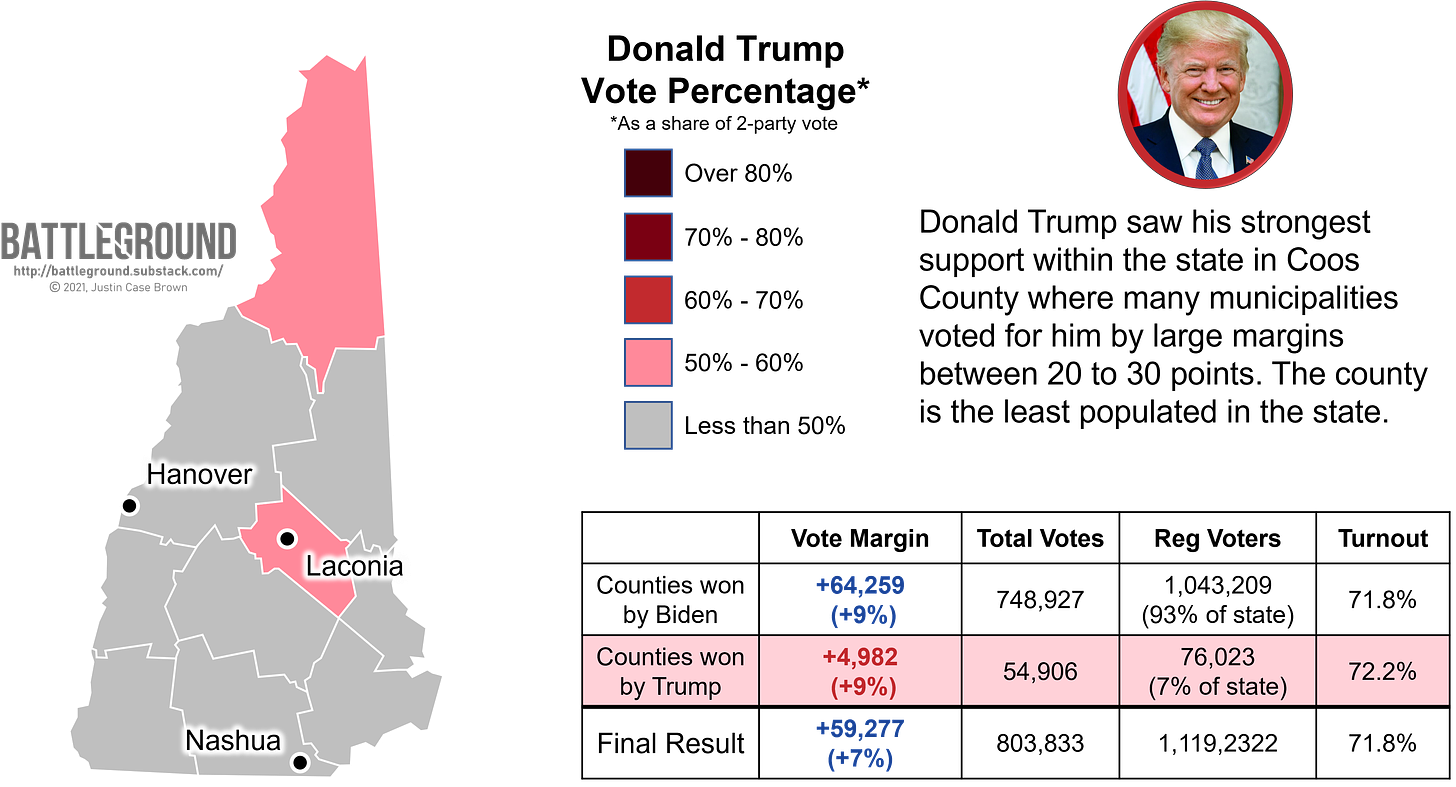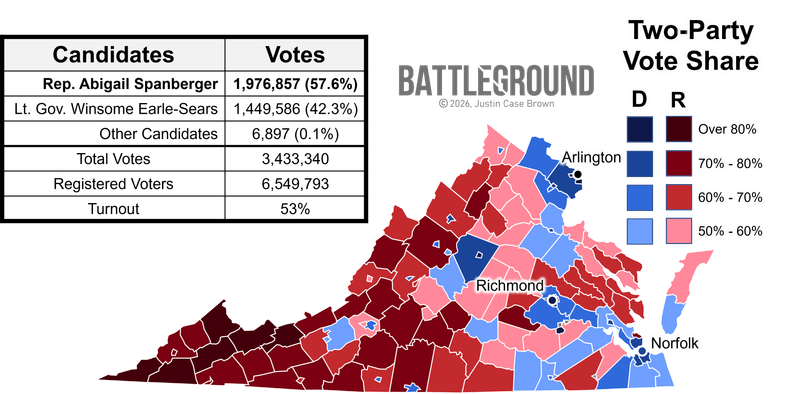New Hampshire: Culture Wars v. Trade Wars
Trump's approach to both trade and social issues turned off many New Hampshire voters.

Topline Takeaways
- Joe Biden won New Hampshire by a 7-point margin and flipped four counties that voted for Trump in 2016.
- Donald Trump’s base of support shrank considerably compared to 2016, consolidating in northern Coos County.
- Trump’s difficulties in New Hampshire can be attributed to his aggressive approach to trade and social issues as much of the state’s electorate is fiscally conservative and socially liberal.
In-Depth Insights

Joe Biden produced a significant gain in votes throughout the state when compared to 2016: Clinton bested Trump by only 2,736 votes (a less than 1-point margin), Biden beat Trump by 59,000 votes shifting the margin to a 7-point win for Democrats. He consolidated much of his support in the socially liberal Connecticut River Valley that forms the western border with Vermont and is home to several universities, including Dartmouth College in Hanover. New Hampshire has the highest percentage of college students per capita of any state in the nation and lands in the top ten for states with the highest percentage of residents possessing at least a bachelor’s degree. This more educated electorate has recently leaned toward the Democratic party as Republicans abandon their socially moderate, establishment wing.
Biden ultimately flipped four counties across the state: Carroll, Hillsborough, Rockingham and Sullivan. Much of this can be traced to Trump’s own undoing, engaging in culture war topics that are politically toxic for many of New Hampshire’s voters. An easy example: when NASCAR banned the Confederate flag from its events, Donald Trump admonished the move and reiterated his commitment to the flag’s heritage. Many of New Hampshire’s NASCAR lovers (the state holds NASCAR’s only Cup Event in New England) were appalled:
“It was a symbol of not very good things. Leave well enough alone. I can't see me driving down the road with a Confederate flag. I think some people do that because they don't understand how history comes into play. I don't think he should have weighed in at all… He won't be getting my vote this time.”
-John Waterhouse, a 2016 Trump voter in NH

“Well, I think the Canadians are being...subsidized up there by their government, so I think Trump is just making it fair. That’s what it sounds like, but I don’t know the whole detail of it.”
-Jack Riendeau, a logger in Coos County, NH
Coos County sits at an important political crossroads thanks to its northern border with Canada. A regional timber industry spans the invisible line separating the two countries with workers often selling lumber from forests in one country to mills in the other. The industry has been falling on hard times as demand for paper continues to plummet, causing a contraction in operating pulp mills. Donald Trump stepped in with several “America First” policies as his Commerce Department imposed steep tariffs on imported Canadian softwood products. While this complicated international trade in this region, many members of the timber industry respect the gesture as a signal that Trump has their back.
“It has been going on for 100 years… If you look back, there have been complaints about this for a long, long time. I don’t know if we will ever straighten it out, to be honest, because there are two different philosophies between the countries… We need to take care of our own.”
-Jethro Poulin, a lumber industry worker in Coos County, NH
However, not everyone in the timber industry sees this aggressive approach to trade in the same light. Hardwood is a different timber product than softwood and is used primarily for furniture and flooring. This commodity’s top customer is not across the northern border but across the world in China. As Trump escalated the trade wars, China retaliated by instituting steep import tariffs on US hardwood, causing prices to plummet. This brought further hardship on an already struggling industry and soured relations with many voters in the state.
“Unlike the other main row crops, we have gotten absolutely no support other than comments of, you know, 'take one for the team' or, 'we can't help you — it's too complicated,' 'you're not really an agricultural product.' "
-Jamey French, CEO of a lumber products company in Kingston, NH
“The irony, I mean, as with agricultural commodities, is the hardwood industry in general comes from red states and a lot of the hardwood sawmillers were supporters of Trump, and in some cases willing to take a bloody nose for what some believed was the greater good of getting China to play fair in other industries. I think that what the industry didn’t realize was how long this trade war would go on for."
-Jim Hourdequin, a lumber industry worker in Hanover, NH
Leftover Links
- Mail-in ballots helped New Hampshire boost voter turnout to record levels. See more data on how New Hampshirites utilized their expanded voting options in the 2020 election.
- All that timber talk give you wood? Here’s a heady deep dive into the differences between the hardwood and softwood industries.
- Hear one liberal New Hampshirite’s experience reaching out to his pro-Trump neighbors following the election.




